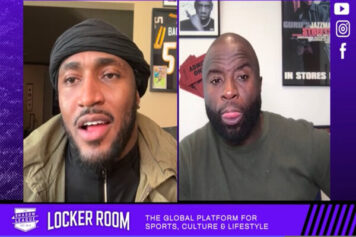Enough already.
It's the classic apples and oranges debate.
Len Bias and Pete Rose? Sorry, they don't belong in the same convo. Not now, not ever.
We all know Bias' sad story. In 1986, Bias died of a cocaine overdose shortly after being selected with the second overall pick in the NBA Draft by the Boston Celtics.
It was tragic, to say the least. Bias, the Maryland star, was supposed to be the next big thing in the NBA. He was beloved by many and his death truly shocked this nation.
Despite it all, Maryland announced on Wednesday that Bias will be inducted into the school's athletic Hall of Fame in October.
Some, including a prominent Washington Post columnist John Feinstein, don't believe Bias belongs – even 28 years after his death.
The reason given by Feinstein, is simplistic at best and inane at worst. In Feinstein’s warped reasoning, if Rose – MLB's all-time hit king – isn't in the Baseball Hall of Fame for betting on the sport than Bias shouldn't be in.
Huh?
Rose is on another planet when it comes to not honoring a man in the Hall of Fame.
First, when you walk into every clubhouse in Major League Baseball, there is a sign bigger than anything else around. It warns all players that betting on baseball is the ultimate sin and that the punishment for such an act is banishment for life.
It's pretty cut and dry, not a single grey area.
There are mountains of proof against Rose. Not only did he bet on the game, but Rose lied about it after getting caught for 14 years.
The reason MLB has to be strict with betting on the sport is simple: it can ruin the integrity of the game.
Since the Black Sox scandal in 1919, MLB has not taken gambling lightly. The players that took money to throw the World Series almost brought the sport to its knees.
Once fans aren't sure if what they are watching is real, the outcome has somehow been altered with payoffs, you don't have a sport anymore. You have the WWE.
Hence, Rose is the highest criminal to MLB. Period.
Bias, on the other hand, was dumb, immature and made a terrible mistake that cost him his own life.
It doesn't matter if it was his first time using coke or he did it every day and no one knew until the day he overdosed.
His drug use ruined his reputation, shamed his family and disappointed fans at the university. There's no doubt about it.
But there are plenty of those people in Hall of Fames all over this country and that's because most people aren't perfect and have flaws.
Check around the Baseball Hall of Fame to start. Ty Cobb, one of the greatest players in the sport, allegedly killed a man by pistol-whipping him and was a card-carrying racist. He's in the HOF.
O.J. Simpson's bust is still on display in the Pro Football Hall of Fame in Canton, Ohio. We know Simpson's story too well.
Paul Hornung, one of the NFL's great early-day players, has a bust in the HOF despite being banned for the 1963 season for gambling on NFL games.
Even Lawrence Taylor, one of the greatest NFL linebackers, is in the HOF despite numerous drug-related suspensions.
At Maryland, Bias stayed out of trouble. He was the greatest player who ever played there. By most accounts, he was a good guy with no issues whatsoever during his years there.
Plus, it's been over a quarter century. Maryland didn't rush to salute the guy who died in a horrible manner.
It's Maryland's Hall of Fame, not the Basketball Hall of Fame in Springfield, Mass.
If a school wants to honor a person from its ranks that it feels is worthy of recognition, it's hard to say it's unjust.
Plus, there's a story to tell, a teachable moment. Students who come through that school should know Bias' story. And not just the good parts, either.
Let them know that Bias was a great college basketball player, who did well in school and was good to the people around him.
And when it came time to celebrate all he had accomplished, Bias made a huge mistake that exemplified the fragility of life.
You may chose not to want to embrace Bias, you have that right. But Maryland also has that same right, the right to finally remember one of its own that it tragically lost.



